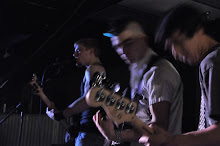Apocalypse Now has many different aspects of cinematography that make it a very unique film. The colors, the angles, the depth of field, and the framing were all different from most other movies I have seen. The use of the different hues throughout the film set a certain mood and gave each scene an individual characteristic. The use of music was also very well done in this film. My favorite use was when they helicopters played "The Ride of the Valkyries" as they attacked the Vietcong beach. This music created an emphasis on the domineering attitude of the fleet and more particularly the aggressive and fearless attitude of Colonel Kilgore. This movie takes a dramatic turn towards the end when Willard finally encounters Kurtz. Throughout the first portion of the movie, action and violence seems to dominate the screen while towards the end, the scenes are more drawn out and meaningful. I think this was done so that the audience is given time to think about Willard's moral conflict and to try and understand Kurt's motives.
One of my favorite scenes in this movie is where Willard and Lance are moving through the trenches off the Do Long bridge trying to find a commanding officer. This scene is very chaotic and disruptive. The lighting in this scene fluctuates from light to dark very often as guns are shot, bombs go off, flares are shot. The light will suddenly be very bright and then fade to almost complete blackness. As Lance and Willard navigate their way through the trenches, Lance accidentally steps on a soldier thinking he is dead. This is most likely a combination of the poor lighting and the fact that Lance is tripping on acid. The sounds in this scene also greatly contribute to the feeling of chaos. The loud guitar on the radio, gattling of machine guns, the low rumble of bombs in the distance, screaming voices crying in fear and pain, and frequent loud explosions close by all make this scene seem like a place where no one wants to be. When Willard comes upon the two men firing at the Vietnamese soldiers, he remains in the shadows and is never completely revealed. The viewer is only given glimpses of his profile and of his piercing eyes. Willard soon realizes that the energetic men shooting think that he is the commanding officer. These two men are a total contrast to a group of men seen earlier in the trenches who are simply sitting around as if nothing is happening. When they cannot kill one soldier out by the wire, the men call for "the Roach." The Roach is a character who is very calm and collected even amongst the chaos of the scene. He is first seen in a distant trench sleeping and is soon woken up to take care of the problem at hand. This scene is shot from a slightly different angle from where the shooter is to give the effect that the Roach is only a couple feet away. The Roach then walks over to where the two men originally were, the whole time appearing very stoic. The camera angle here is from a low position looking up towards the Roach, almost giving the effect of Willard looking up at him. The Roach loads his weapon, denies the option of using a flare, and takes aim. While he is aiming, the camera cuts to all the characters around him showing their individual responses to his epic demeanor. The Roach then fires a single shot into the night sky and causes an explosion. Afterwards, the Vietnamese soldier is no longer heard. At this point Willard asks the Roach if he knows who is in charge to which he simply replies, "Yeah" and then returns to his former napping position. This scene shows how the war has affected soldiers differently. I also believe that the lighting represented Willard's emotions and feelings towards Kurtz. Just as the light faded in and out, Willard's sympathetic attitude towards Kurtz's state of mind would come and go.
Overall, this movie was excellent. However, I felt that the ending scene could have been done differently. As far as filming goes I though it was great, but I did not feel a real moral conflict in the story. I felt that Kurtz was wrong and needed to be stopped. No dilemma. I did, however, like the message presented that war changes people and can dig deep into their minds and reveal a darkness that civilization would never accept. I appreciated the fact that Kurtz knew it was time for him to die. One line that I particularly liked was when Willard said that even the jungle, the only thing Kurtz listened to anymore, wanted him dead.
Thursday, September 24, 2009
Subscribe to:
Post Comments (Atom)

You wrote: "but I did not feel a real moral conflict in the story."
ReplyDeleteTo which I reply: WWWWWWHHHHHAAAAAAAATTT?!?!?!? No moral conflict? I think the top of my head just blew right off!